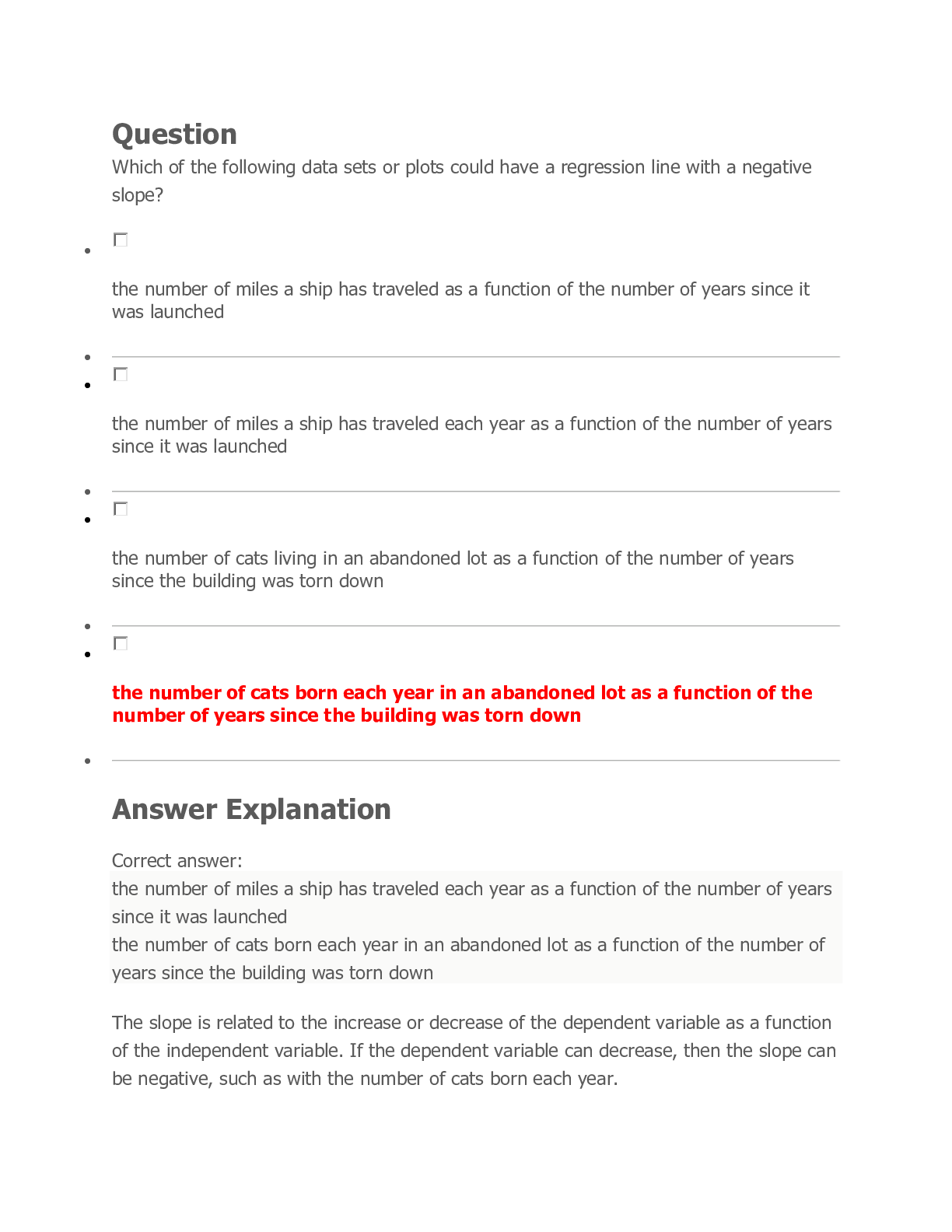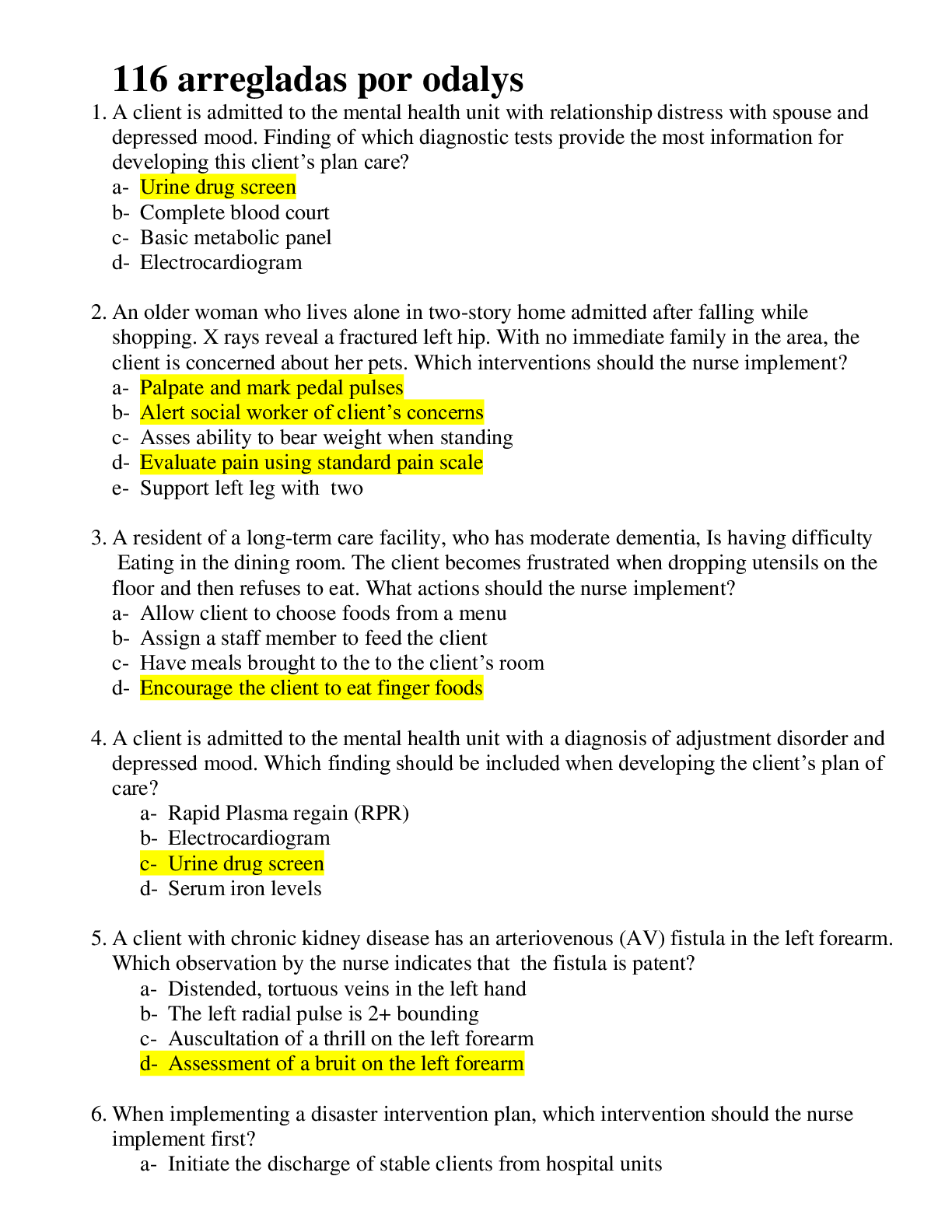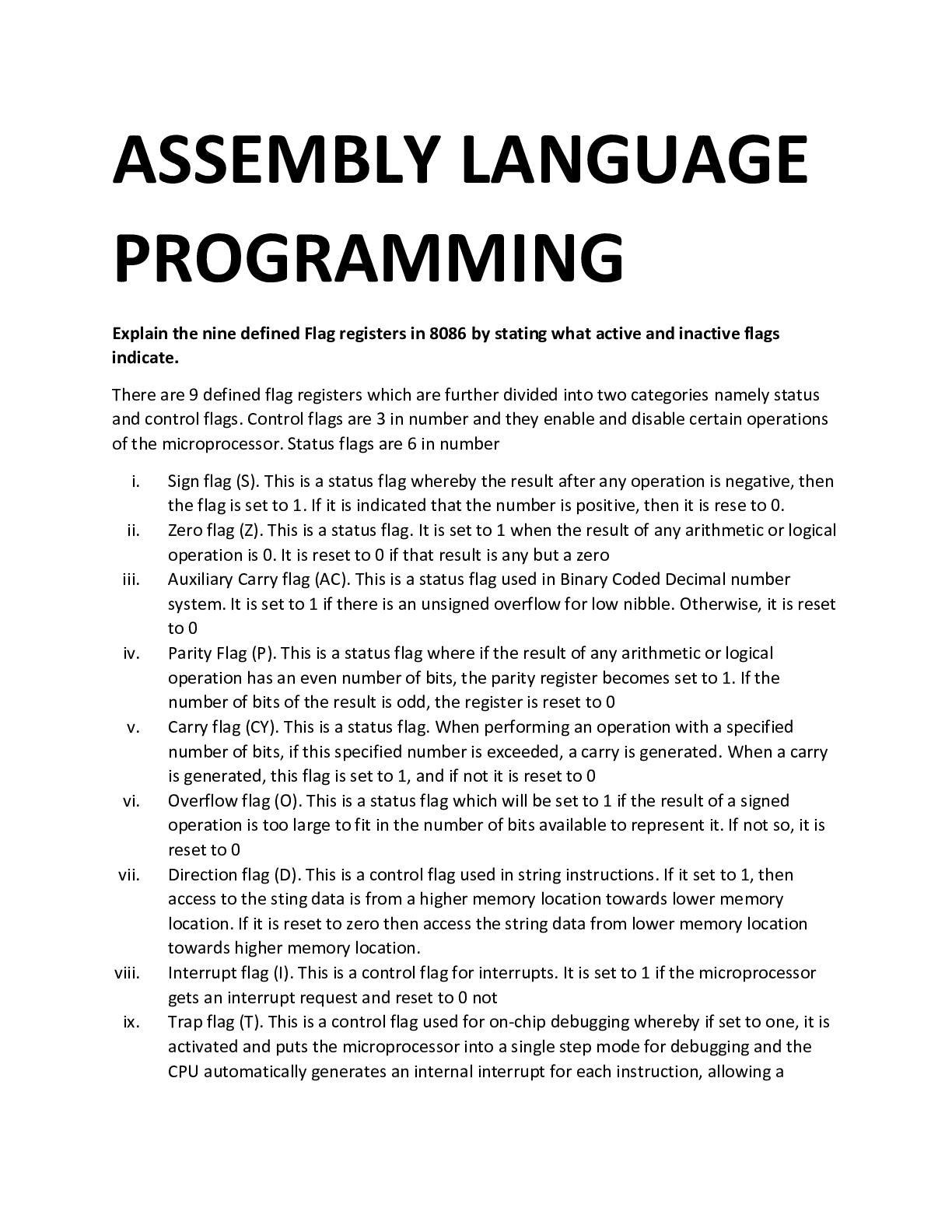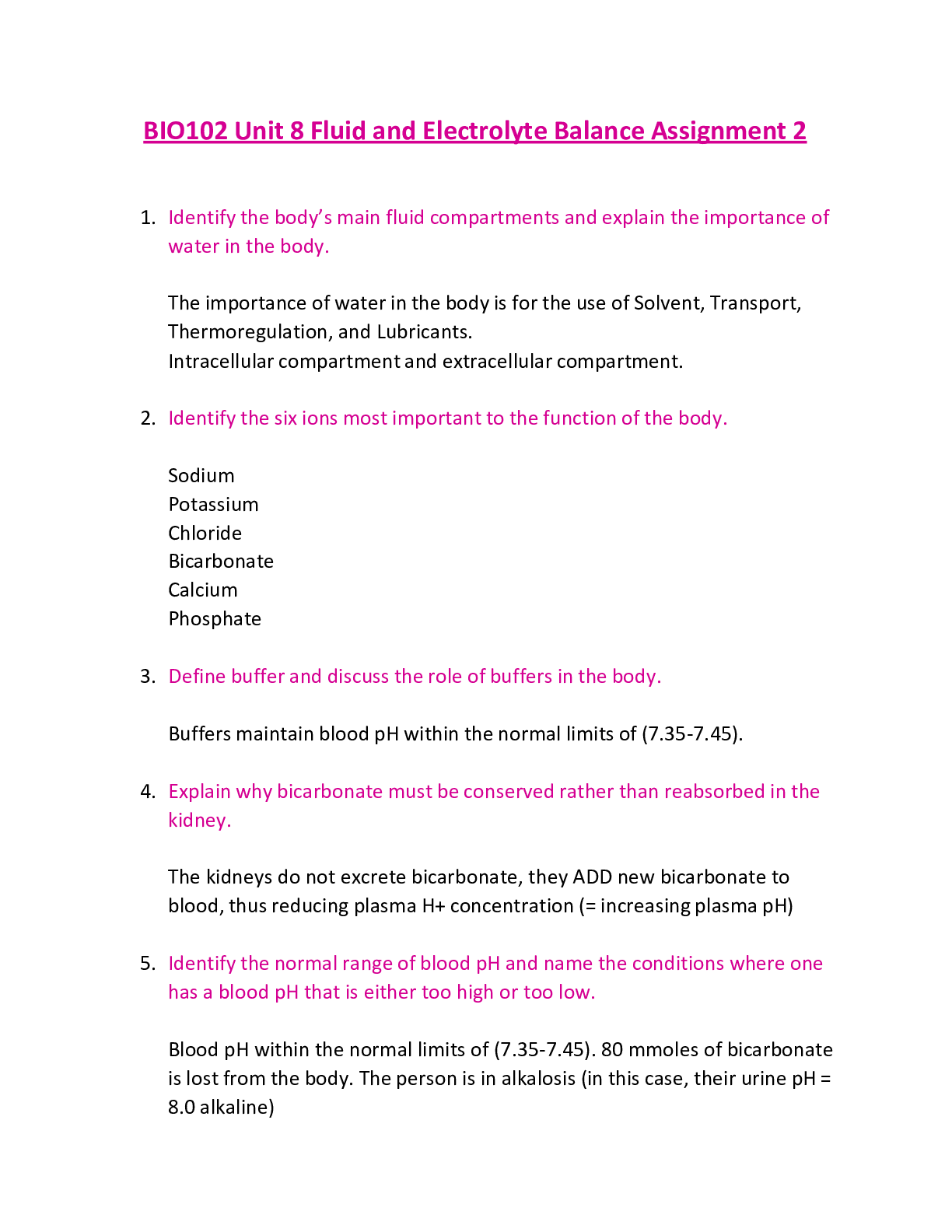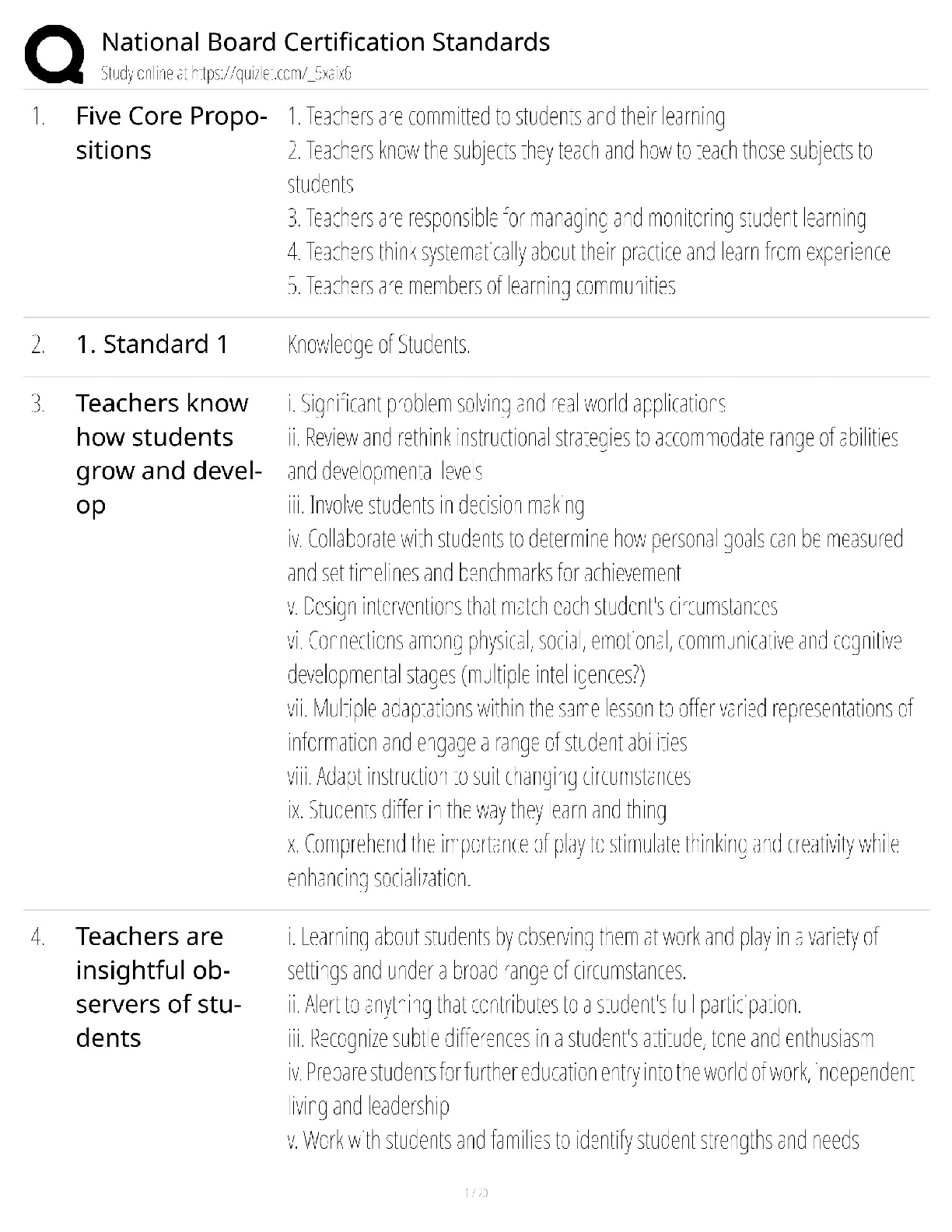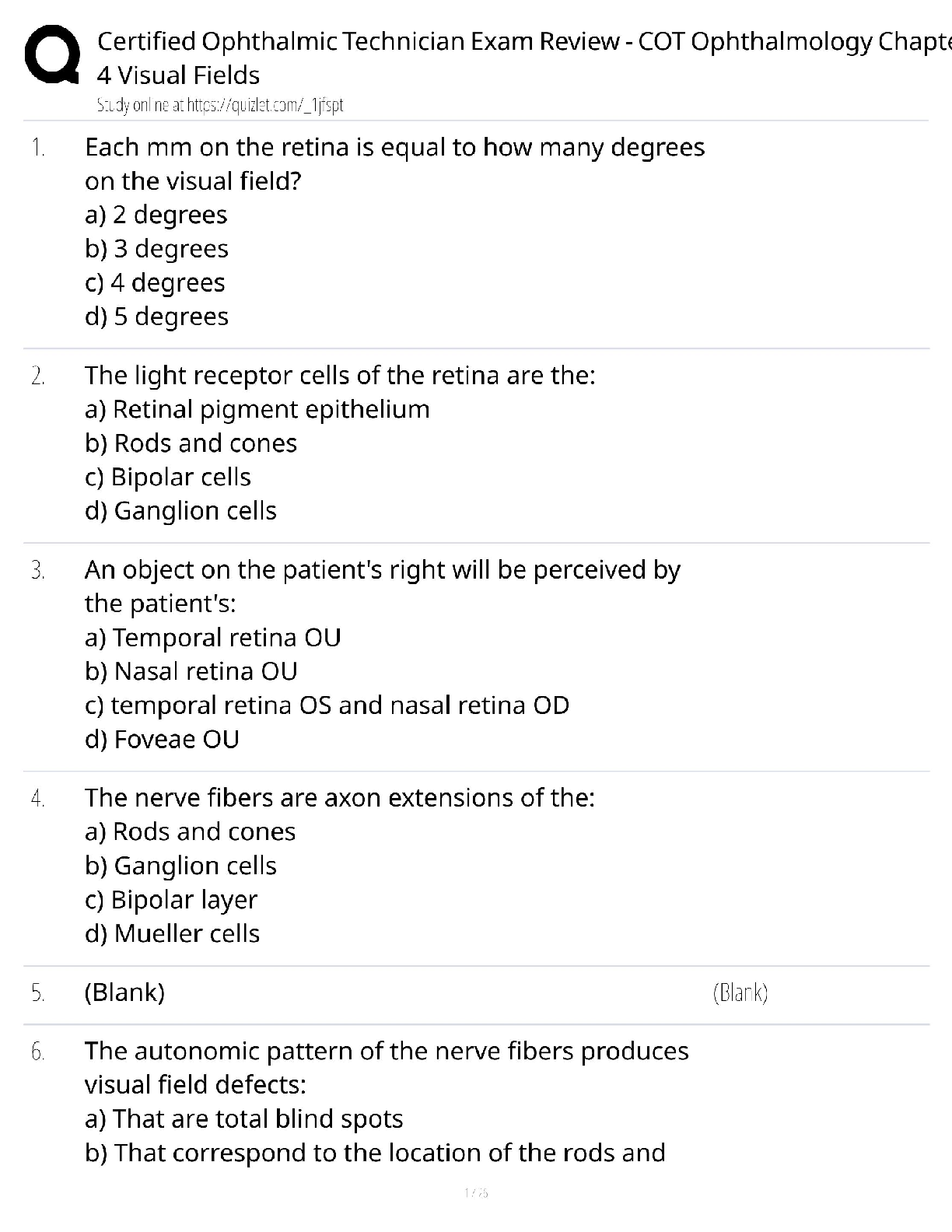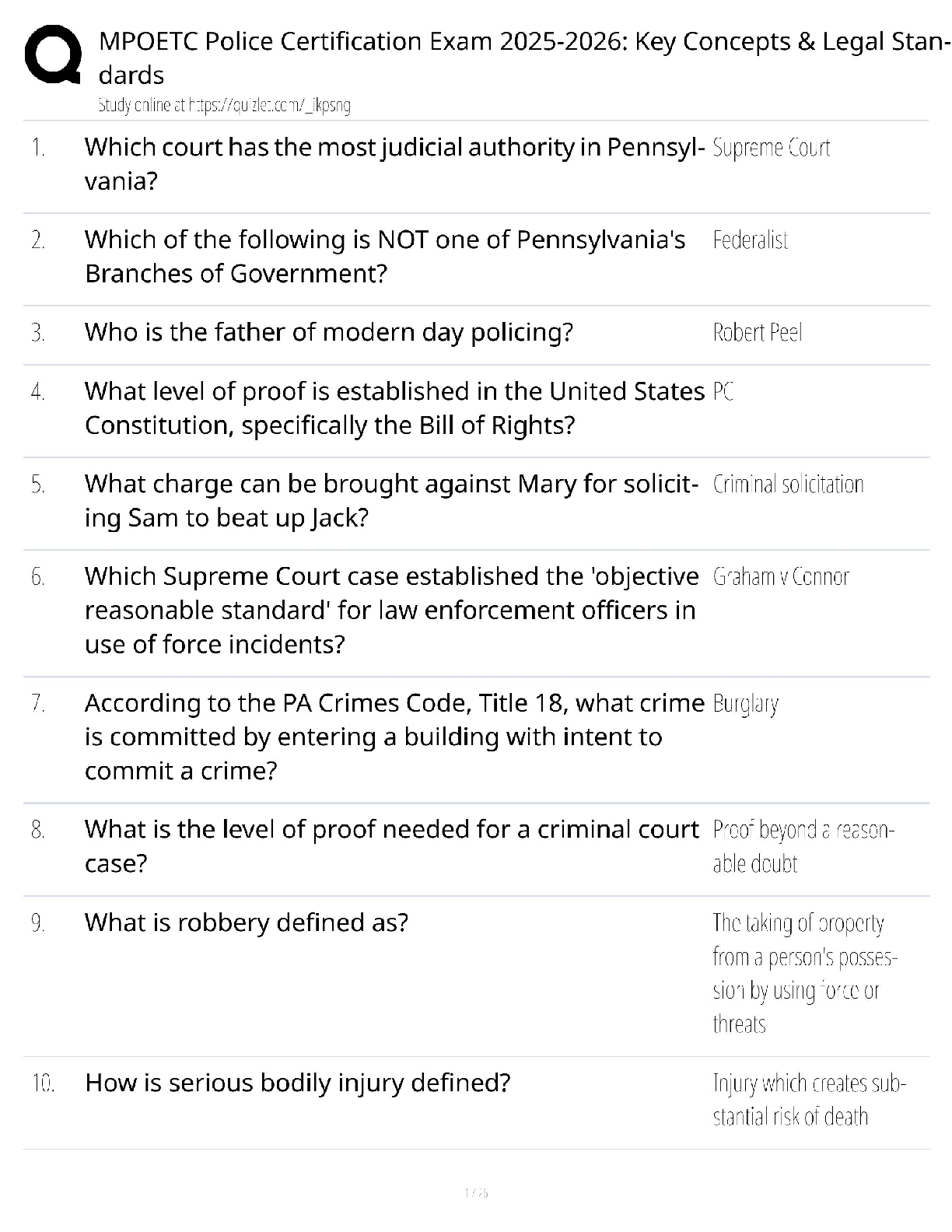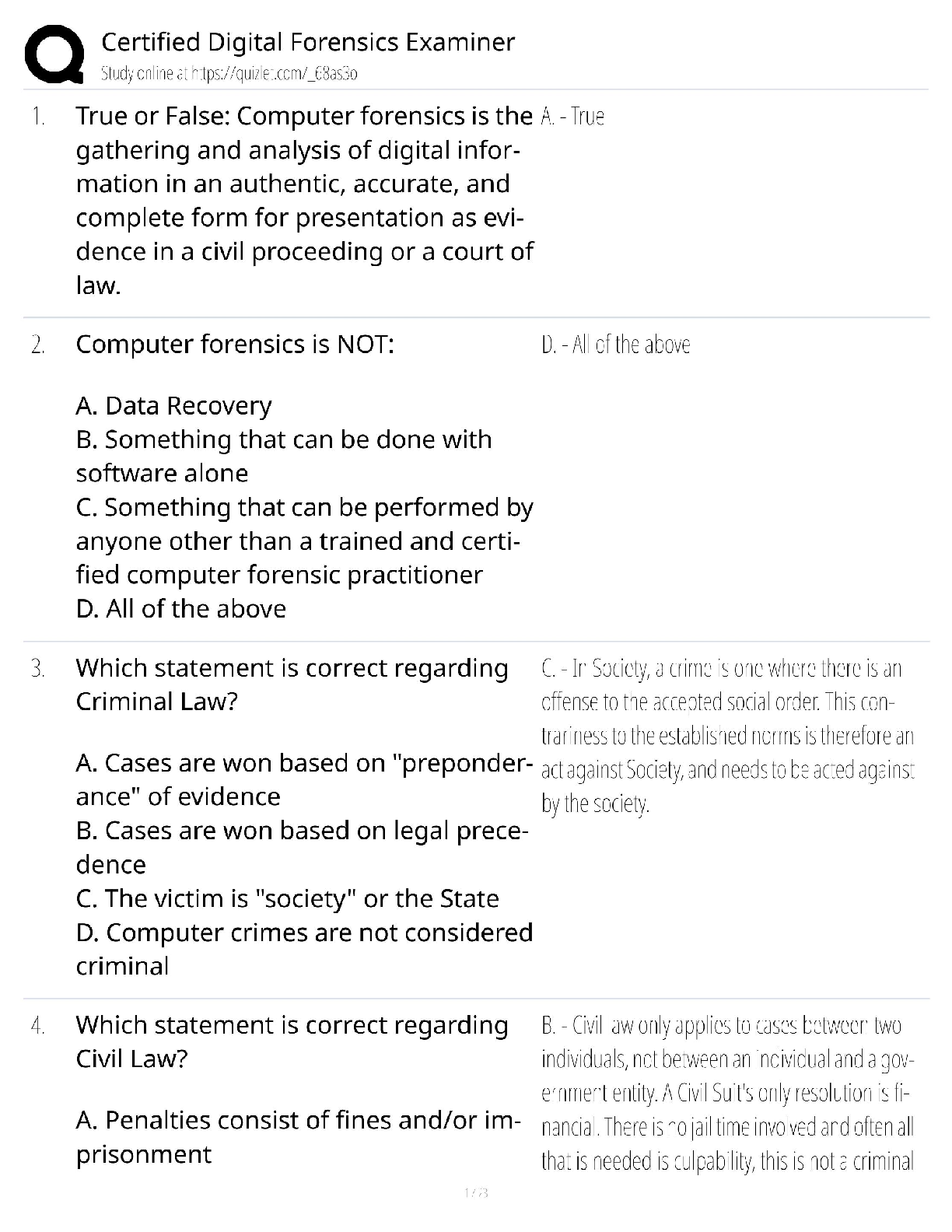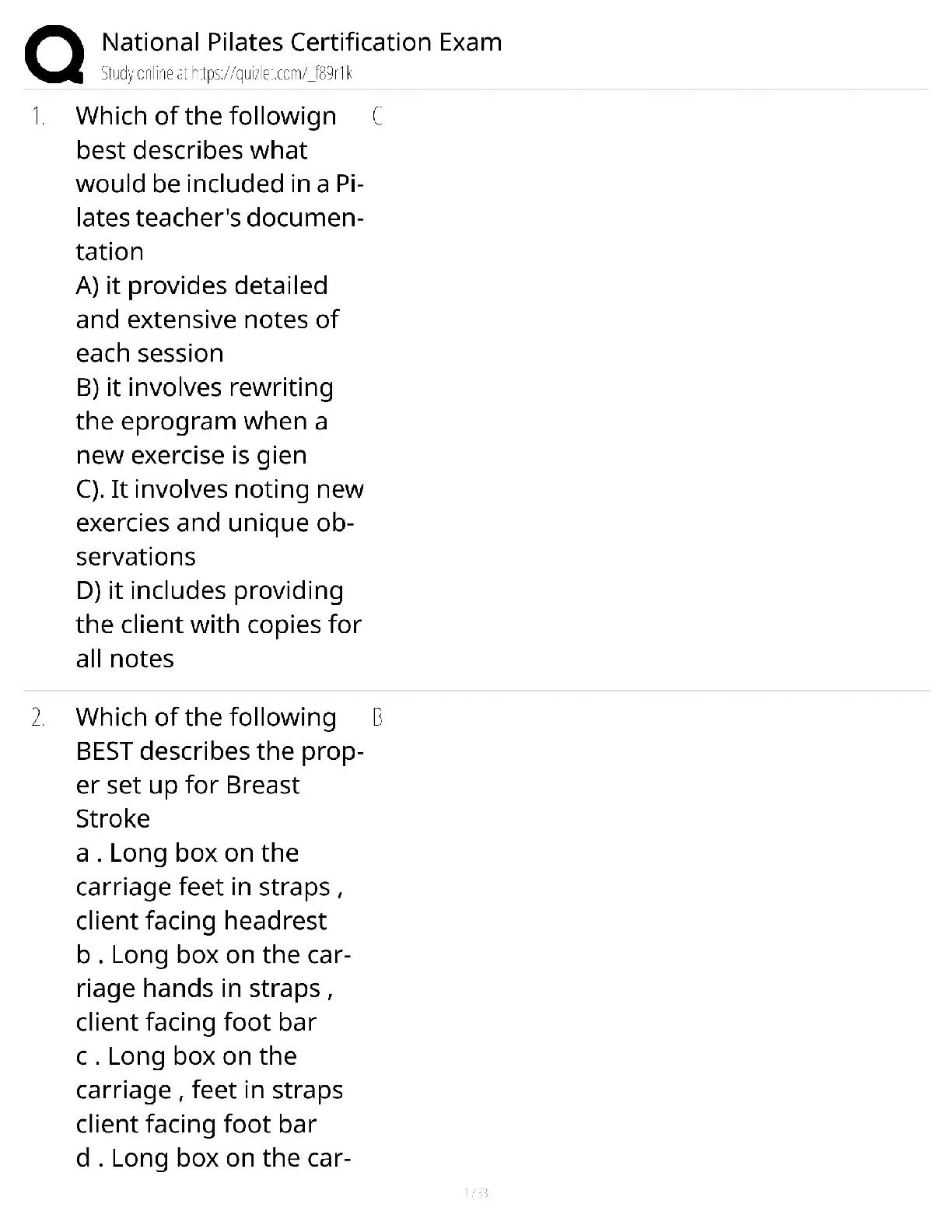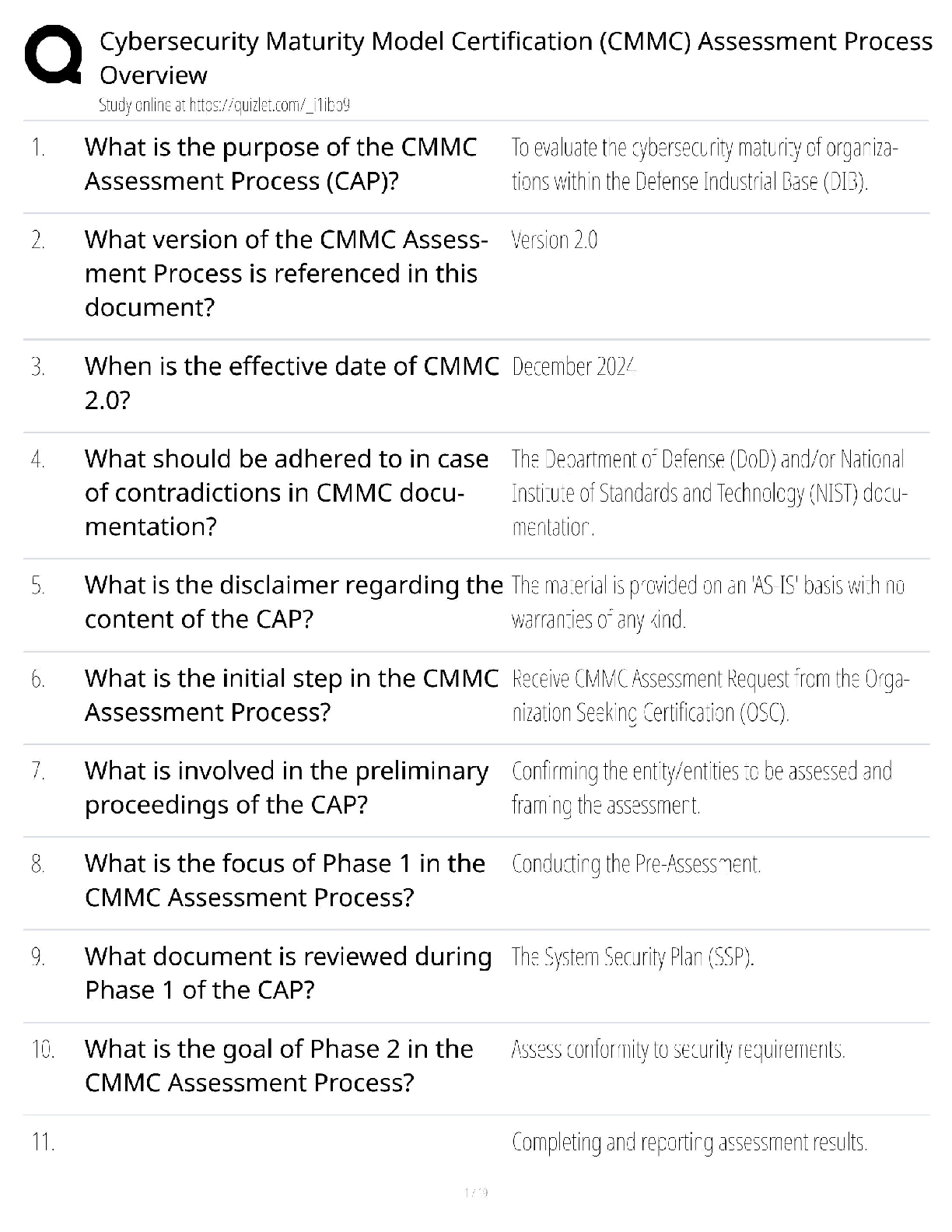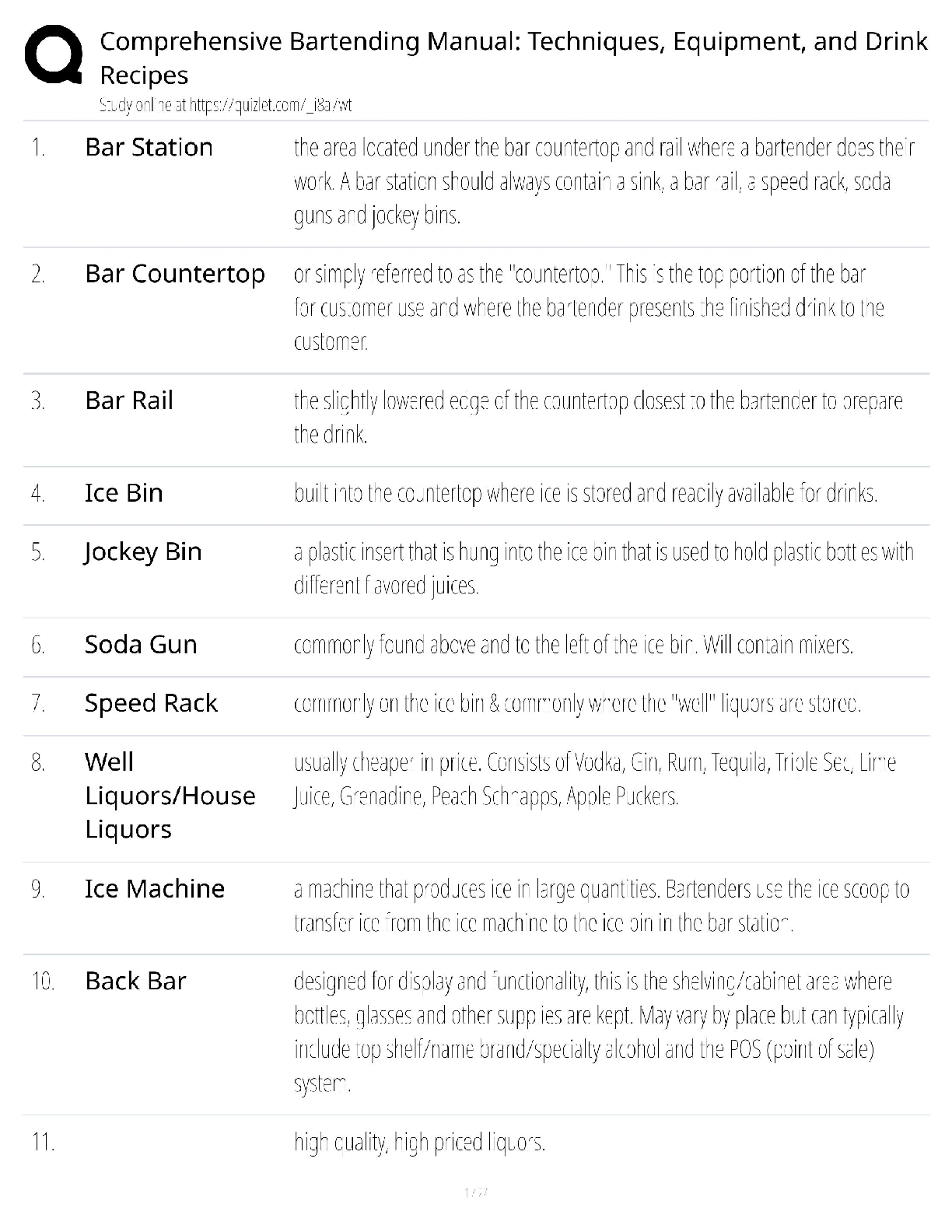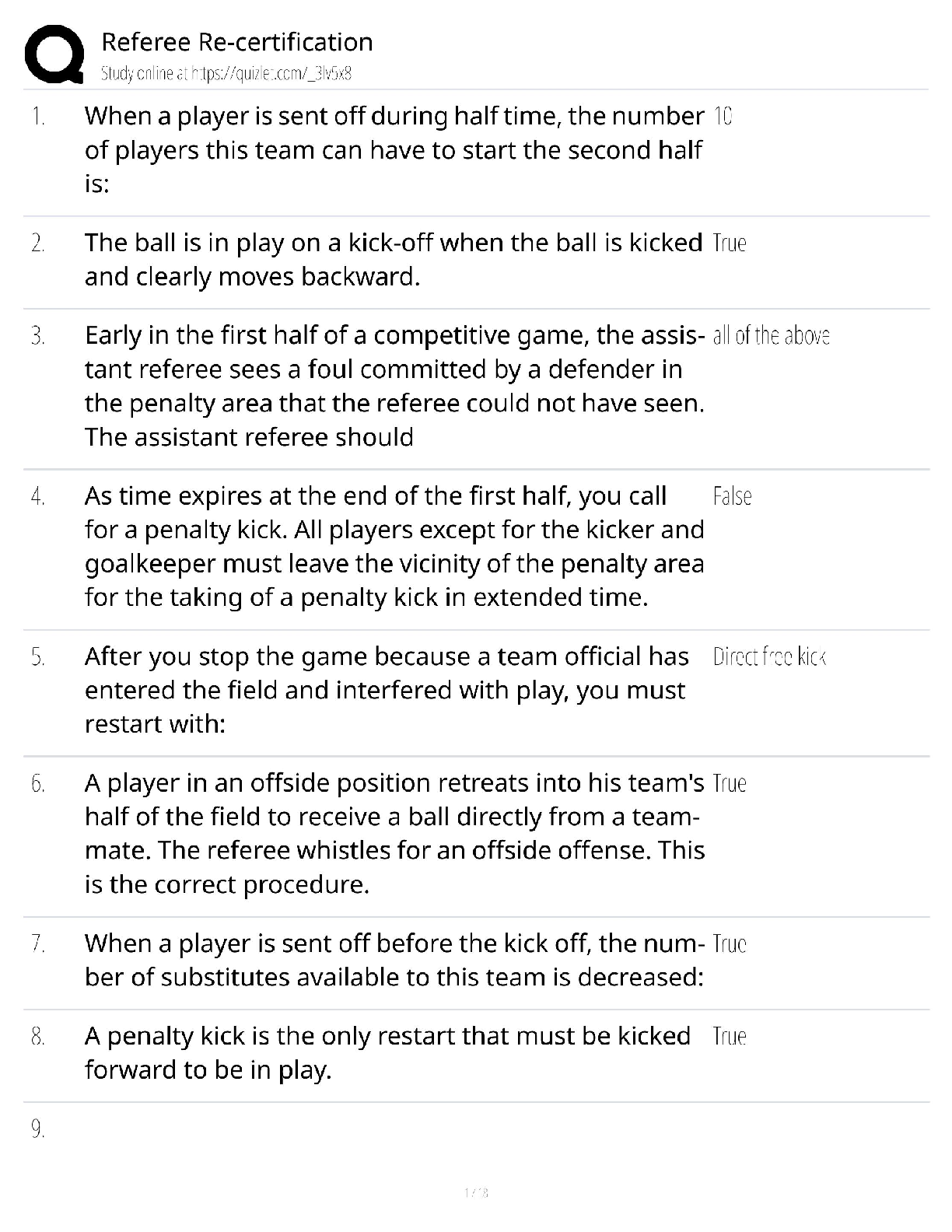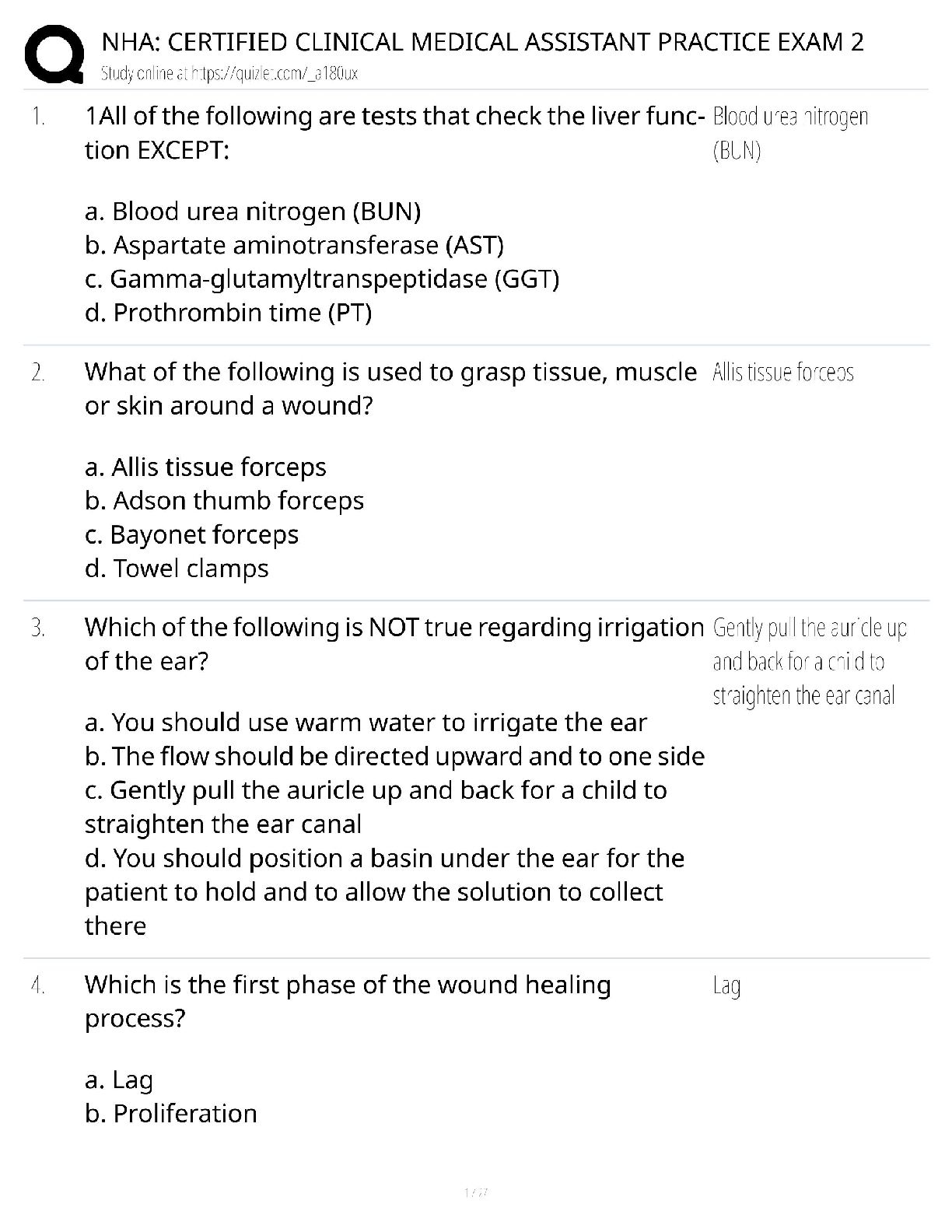History > QUESTIONS & ANSWERS > Ancient Greek Philosophers (All)
Ancient Greek Philosophers
Document Content and Description Below
Ancient Greek Philosophers (A guaranteed) ANCIENT GREEK PHILOSOPHERS MILESTONE 1 1 When Crito tries to convince Socrates that he must not betray his own life, how does Socrates respond? • He sa ... ys that life would not be worth living if the principle of justice was violated. • He says that all life has value, but society determines the fate of man. • He says that what is right is often misunderstood by mortals and must be left to the gods. • He says that he is not afraid of dying and knows that his followers will restore his good name. RATIONALE In the Crito, Socrates' friend (Crito) tried to convince him to escape and avoid execution. Socrates refused to do so, and explained why escape would be wrong. Socrates asserted that not all life has intrinsic value; only the good life does. Since he believed that he would violate the principle of justice (established by the Social Contract) by avoiding death, Socrates refused to avoid it. CONCEPT The Crito: The Duties of the Social Contract 2 A Stoic avoids looking for good in external things and recognizes that value __________. • has little to do with ethics • is determined by intrinsic personality traits • can be found in every living entity • lies in our judgment of the world RATIONALE Stoicism is a philosophical approach that encourages people to focus only on what they can control (e.g., their desires, emotions, reactions, and judgments of the world). They should not be concerned by things that are beyond their control. Stoicism directs people to focus on their internal values rather than external rewards. CONCEPT Stoicism: The Ethics of Dispassion 3 Choose the example that best demonstrates a central tenet of Stoicism. • Bob is such a rabid Cubs fan that it isn’t fun to watch a baseball game with him. • Stephanie is a good nurse because she is skillful and always remains composed. • Carlene is devastated when her outdoor party is interrupted by a thunderstorm. • Mr. Donovan insists that he begin each morning with pastry and a cup of sweet tea. RATIONALE Stoicism is a philosophy that encourages people to focus only on what they can control (e.g., their desires, emotions, and reactions). Because Stoicism focuses on eliminating desires, and emphasizes control of emotions, it leads people to perform their assigned jobs (or roles) skillfully and dispassionately. CONCEPT Stoicism: The Ethics of Dispassion 4 Which branch of philosophy examines the ultimate nature of reality? • Natural philosophy • Epistemology • Cosmology • Metaphysics RATIONALE Metaphysics is the branch of philosophy that is concerned with discovering and describing the ultimate nature of reality. Cosmology is the study of the universe in its totality, natural philosophy examines nature and the universe, and epistemology analyzes and defends concepts of knowledge. CONCEPT What is Philosophy? 5 Being a good parent is a __________ condition for having a child. Apply conceptual analysis to this statement and choose the answer that correctly describes the relationship. • neither necessary nor sufficient • necessary, not sufficient • sufficient, not necessary • both necessary and sufficient RATIONALE Being a good parent is not a necessary condition, or logical requirement, for having a child because there are people who have children who aren't good parents. In order to be a parent, a person must have a child. That makes being a good parent a sufficient, but not a necessary condition for having a child. CONCEPT Plato: An academic approach to concepts 6 Read the following statement by Socrates: “In questions of just and unjust, fair and foul, good and evil, which are the subjects of our present consultation, ought we to follow the opinion of the many and to fear them; or the opinion of the one man who has understanding?” Extract Socrates' argument from this text and choose the sentence that accurately reflects it. • Absolute justice can only be achieved when the state agrees with the opinion of the masses. • He who has experienced the administration of justice will do as the majority commands him to do. • Any man who cares about ethics and wisdom has an obligation to listen to himself over others. • Non-experts have opinions, but the man who is an expert in a field has true knowledge. RATIONALE In this selection from the Crito, Socrates argues that we should consult experts (who have "understanding," or knowledge) when we seek wisdom, and not the majority (who have only opinion). CONCEPT The Apology — Socrates' Arguments 7 Which of the following statements about the atomistic worldview is FALSE? • Philosophical atoms of different shapes and consistencies are the fundamental components of reality. • Everything in the universe exists as a single atom, or a collection of atoms. • The worldview of philosophical atomists, with some revisions, has been adopted by contemporary science. • The philosophical worldview of the early Greek atomists had great influence on philosophical, scientific, and religious thinking, but only for a brief period of time. RATIONALE The philosophical worldview of the early Greek atomists has continued to have an impact throughout history. Atomism has been adopted and modified by contemporary science, and has had a lasting influence on religion and theology. CONCEPT The Atomistic Worldview 8 Recall the similarities and differences between Plato and Aristotle's philosophical approaches. Select the statement that would most likely have been made by Plato, rather than by Aristotle. • “My ideas have served as a starting point for both philosophy and the physical sciences.” • “I teach by example and I live by what I teach, no matter the consequences.” • “In order to find truth, we must first identify what makes a thing what it is, its essence. • “My approach is scientific and empirical; we learn about truth from observation and discovery.” RATIONALE Plato proposed the existence of essences in his doctrine of the Forms. As a result, it is more likely that he would have made this statement. As a rationalist philosopher, Plato believed that knowledge does not rely on human senses alone, and can be accessed through the existence of essences. The statements which involve science and empiricism are reflective of Aristotle's views. The statement about teaching and living by example is reflective of Socrates' philosophy. CONCEPT Aristotle: The Dissection of Reality 9 In the Apology, what does Socrates do when he is found guilty and sentenced to death? • He tries to convince the jury to accept his defense. • He agrees that his actions were immoral and that the decision of the judges is just. • He is willing to face death rather than violate the principles of his moral philosophy. • He asks Plato to record his life. RATIONALE The Apology is Plato's transcription of the defense Socrates presented at his trial on charges of "denying the gods" and "corrupting the youth of Athens." When found guilty and sentenced to death, Socrates accepts his sentence. He argues that it is more important to live rightly, which he believes he has done, than to avoid death by compromising one's moral philosophy. [Show More]
Last updated: 3 years ago
Preview 1 out of 11 pages

Buy this document to get the full access instantly
Instant Download Access after purchase
Buy NowInstant download
We Accept:

Reviews( 0 )
$9.00
Can't find what you want? Try our AI powered Search
Document information
Connected school, study & course
About the document
Uploaded On
Oct 25, 2020
Number of pages
11
Written in
All
Additional information
This document has been written for:
Uploaded
Oct 25, 2020
Downloads
0
Views
102

